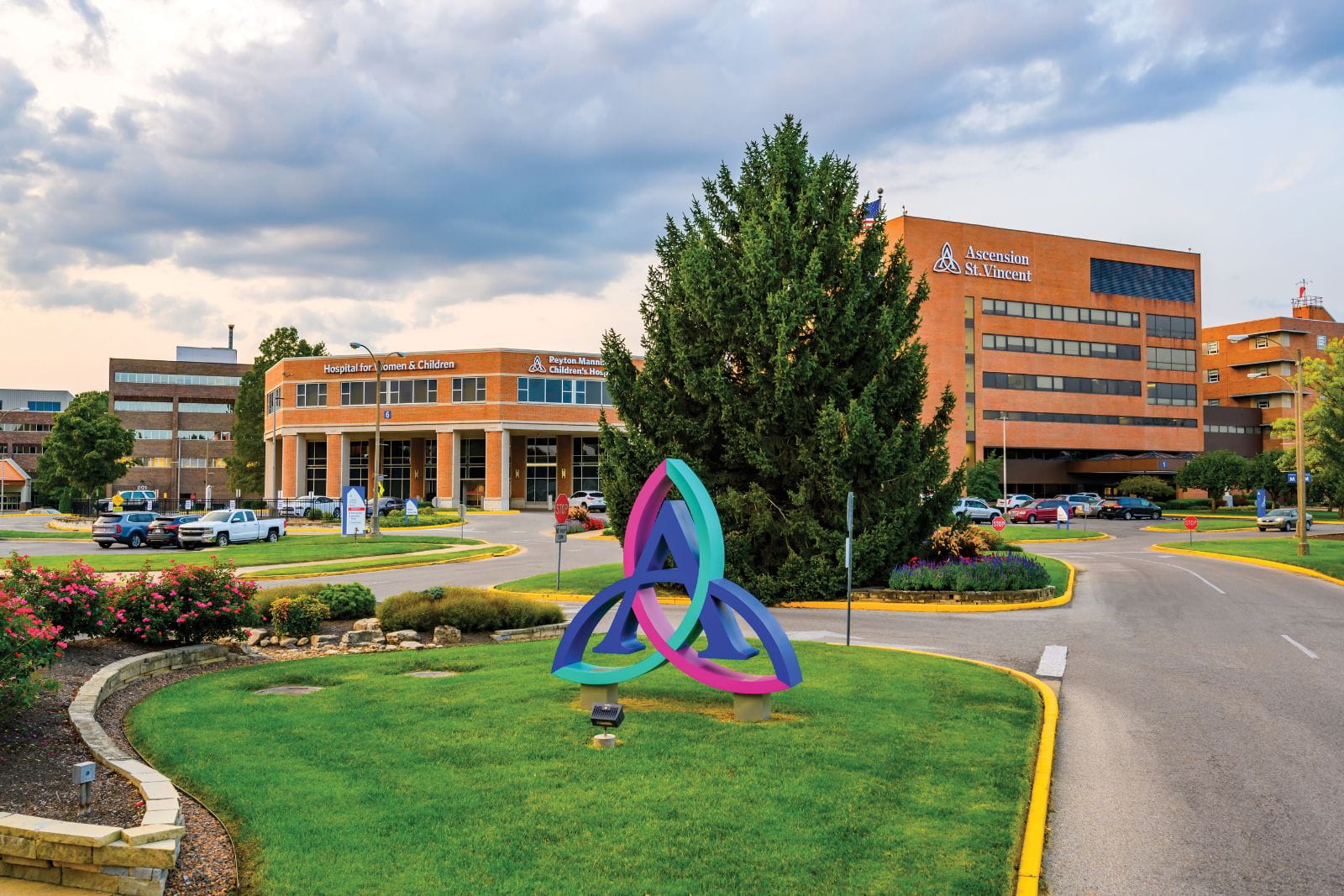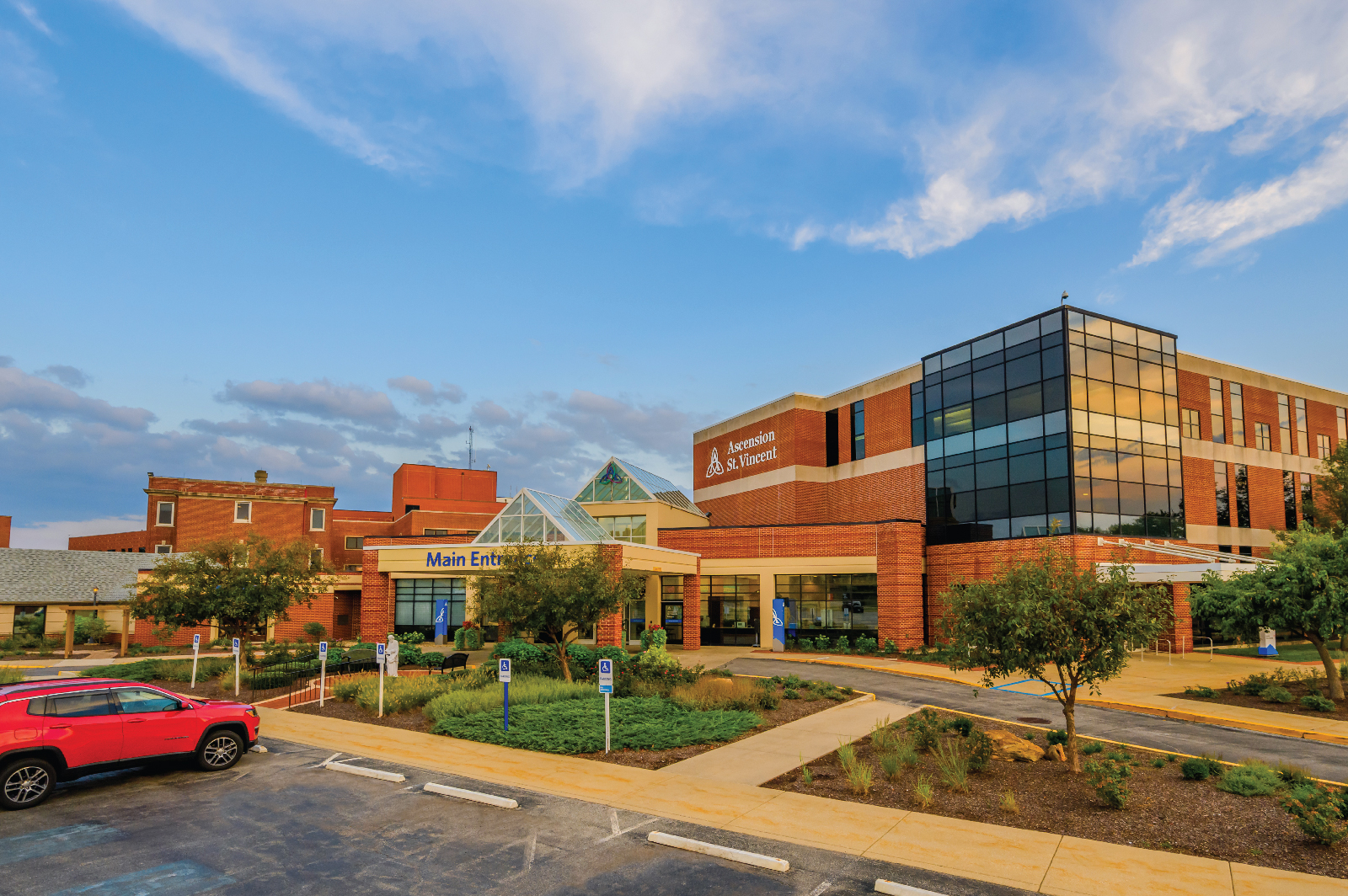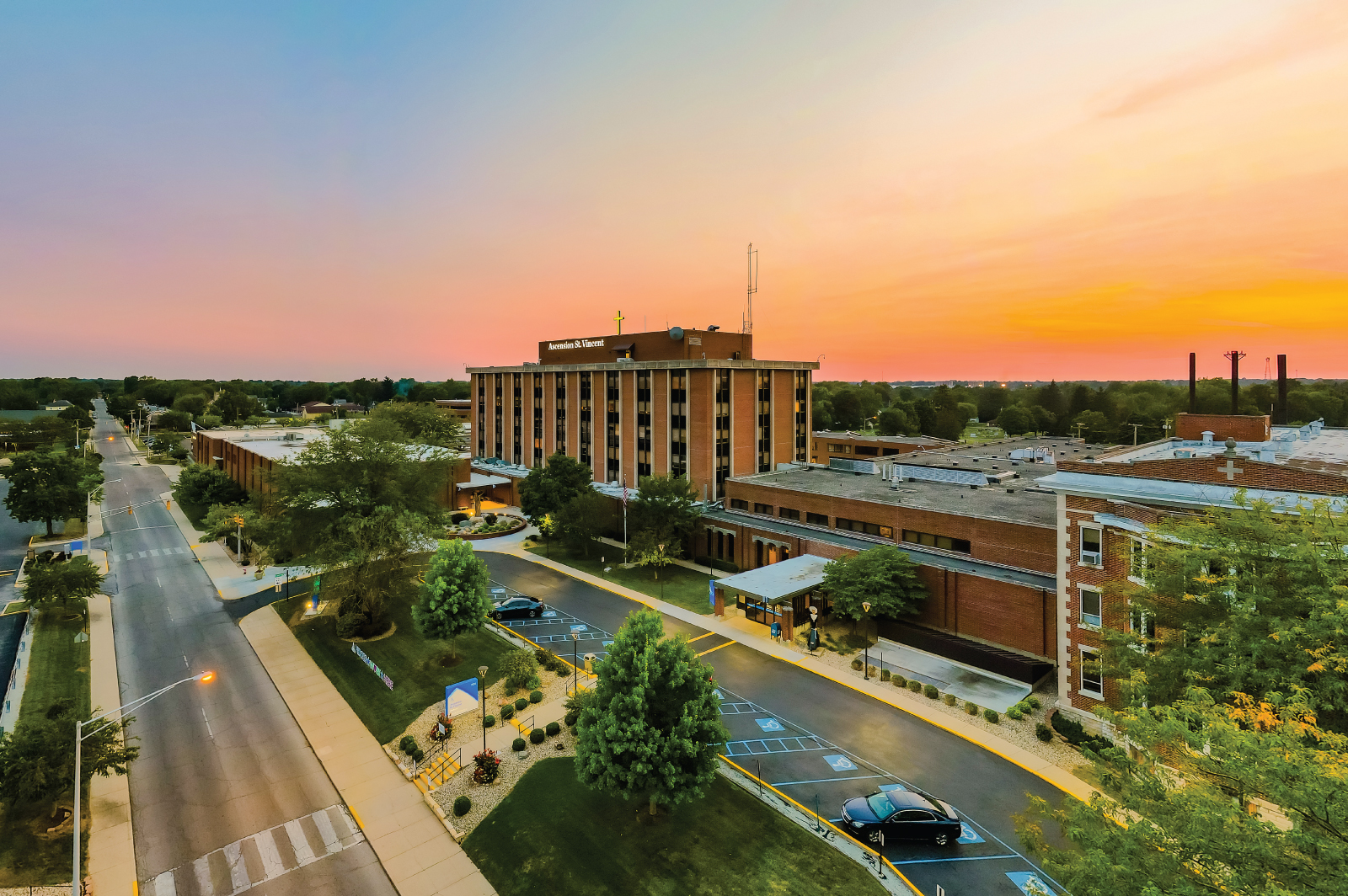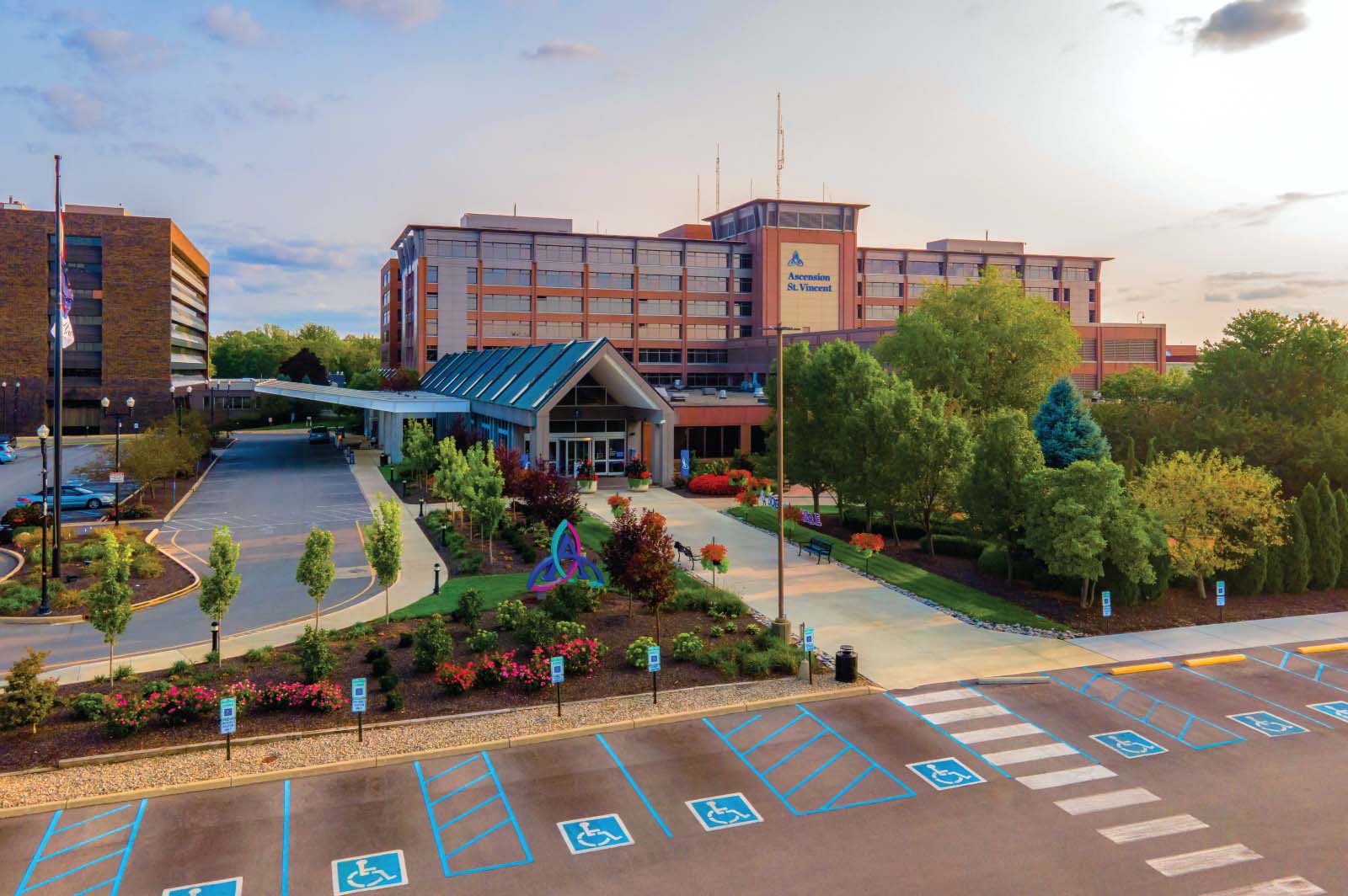
Advanced stroke care in Evansville
Neurologists and neurosurgeons at Ascension St. Vincent in Evansville, deliver stroke care and rehabilitation to help you recover after a stroke.
-
How do I know if I'm having a stroke?
Stroke symptoms can come on suddenly. Call 911 and go to the nearest ER if you experience any of these stroke symptoms:
- Arm weakness
- Face drooping or uneven smile
- Lost or unclear vision
- Speech difficulty
- Sudden loss of balance
-
What is a stroke?A stroke occurs when there is a disruption in the blood supply to the brain. This disruption can come from a blocked blood vessel in the brain (ischemic stroke) or a blood vessel that ruptures and bleeds into the brain (hemorrhagic stroke).
In many cases, patients presenting with an acute stroke are suffering from an intracranial large vessel occlusion. This medical emergency is caused by a blood clot obstructing flow to a major brain artery.
-
What should I do if I think someone else is having a stroke?
If you think someone is having a stroke, call 911 right away. Stay with the person and note the time they began to have symptoms. This information can help the emergency room care team.
If you or a loved one are experiencing a stroke — every second counts. Call 911 and go to the nearest ER.
-
What is a mini-stroke, also called a transient ischemic attack (TIA)?When someone experiences stroke symptoms that go away in a short period of time (typically less than an hour), it may be considered a TIA (transient ischemic attack.) When blood flow to the brain is interrupted for a short period (usually less than five minutes), it may be a warning sign of a future stroke. TIA is an emergency like stroke. If you experience signs of a stroke or TIA, don't wait to see if the symptoms go away.
-
How is stroke treated?
Emergent treatment for ischemic stroke may include:
- IV thrombolytic- medication used to dissolve clot and restore blood flow
- Mechanical thrombectomy- procedure to remove a clot blocking blood flow to the brain
Your doctors, nurses, and rehabilitation therapists help you recover after a stroke and help prevent a future stroke.



